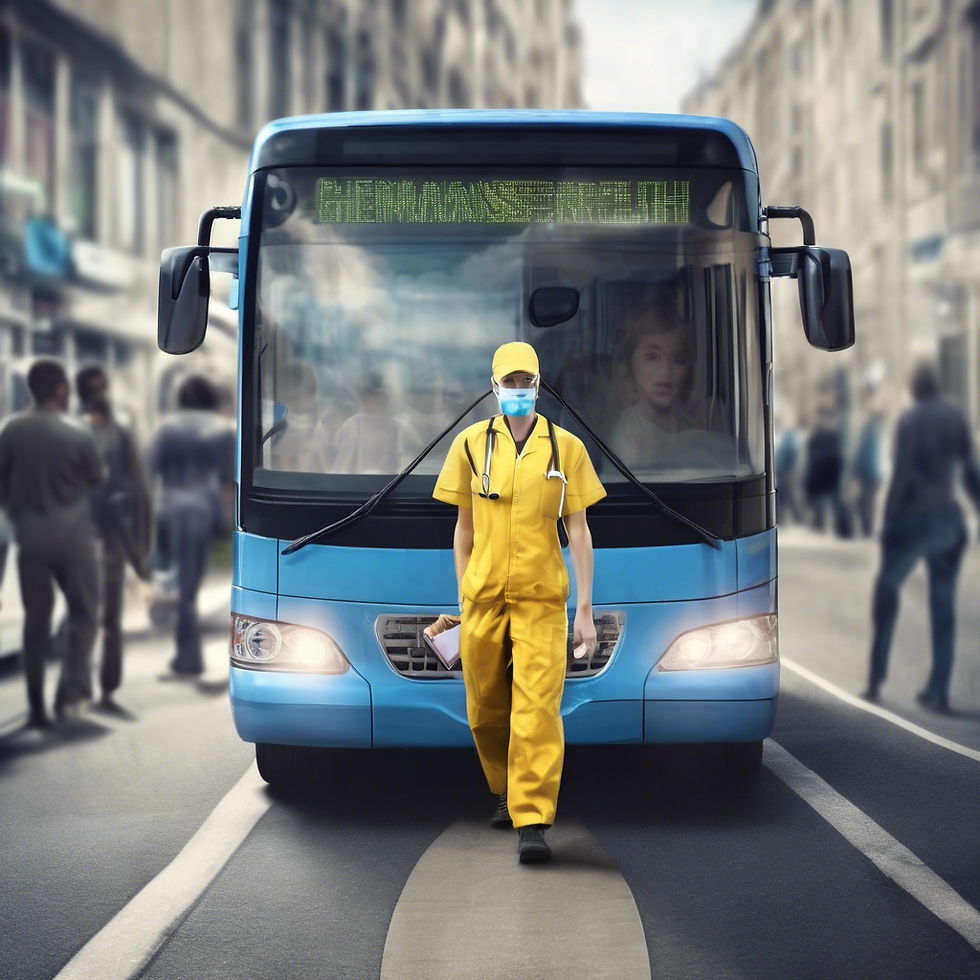Harnessing the Power of Mobile Units to Combat Opioid Addiction in Underserved Communities
- jdalaly
- May 9, 2025
- 4 min read

Opioid addiction is a significant public health crisis facing communities across the United States, particularly in underserved areas where access to treatment and support services is limited. The introduction of mobile unit programs is a promising solution aimed at bridging this gap. Quick Clinic has recognized this critical need and is launching a mobile unit program staffed with licensed professionals to deliver Medication-Assisted Treatment (MAT) and support services directly to these communities.
The Crisis of Opioid Addiction
The opioid epidemic has far-reaching consequences, leading to increased morbidity, mortality, and social issues within communities. Parts of the country, particularly rural and low-income areas, often lack adequate access to healthcare services and addiction treatment facilities. Patients in these regions may find it challenging to seek help due to transportation barriers, stigma, or a lack of local resources.
The impact of opioids extends beyond the individual, affecting families and entire communities. Thus, addressing this crisis requires innovative approaches to deliver comprehensive care to those who need it most.
What is Medication-Assisted Treatment (MAT)?
Medication-Assisted Treatment (MAT) combines behavioral therapy and medications to treat opioid addiction effectively. MAT helps reduce cravings and withdrawal symptoms, making it easier for individuals to engage in recovery. Medications commonly used in MAT include buprenorphine, methadone, and naltrexone, each of which plays a vital role in the treatment process.
By integrating MAT within mobile units, Quick Clinic aims to offer the necessary medications along with holistic support services, thereby enhancing the chances of recovery for individuals battling opioid addiction.
Mobile Unit Programs: A Necessary Evolution
Mobile unit programs offer a flexible and innovative approach to delivering healthcare services. By bringing treatment directly to underserved areas, these units can significantly mitigate barriers to accessing care. They are equipped with medical professionals who can provide evaluation, diagnosis, and treatment on the go, ensuring that individuals do not have to navigate the complexities of transportation or long wait times at clinics.
The mobility of these units also allows for tailored outreach efforts. Events can be organized in partnership with local community organizations, creating an environment that fosters open dialogue about addiction and recovery. Removing stigma through visibility and accessibility can empower those struggling with addiction to seek help.
Benefits of Mobile Unit Programs
The benefits of mobile unit programs are multifaceted and impactful:
Increased Access: By bringing treatment directly into communities, mobile units help overcome geographical and logistical barriers that prevent individuals from seeking help.
Personalized Care: Patients can receive individualized care in a familiar setting, which can enhance their comfort and willingness to engage in treatment.
Community Engagement: Engaging with communities through events and education helps normalize conversations around addiction, creating a supportive environment for recovery.
Holistic Support: Beyond MAT, mobile units can provide additional services such as counseling, group therapy sessions, and resources for social services, effectively addressing the complex needs of individuals.
Implementation Challenges
While the benefits of mobile unit programs are clear, several challenges exist in their implementation. Funding and resource allocation are crucial hurdles, as organizations must ensure that they can maintain operations and provide comprehensive care.
Additionally, regulatory compliance presents a significant barrier. Mobile units must adhere to various state and federal laws regarding drug dispensing and healthcare delivery. Establishing partnerships with local health authorities can help navigate these challenges and ensure successful implementation.
The Role of Community Education
An essential component of mobile unit programs is community education. By hosting information sessions and workshops, healthcare providers can raise awareness about addiction and recovery, dispelling myths and reducing stigma.
Education plays a pivotal role in fostering acceptance and understanding surrounding opioid addiction. When community members understand the nature of addiction and the resources available to them, they are more likely to seek help and support others in their journey to recovery.
Looking Ahead: The Future of Mobile Health in Addiction Treatment
As Quick Clinic launches its mobile unit program, it sets a precedent for how healthcare can evolve to meet the needs of underserved populations. The integration of MAT and support services in a mobile format demonstrates a commitment to innovation, compassion, and community well-being.
Future expansions of mobile unit programs could include additional preventative healthcare services, mental health support, and outreach for other substance use disorders, further addressing holistic health needs in these communities.
Conclusion
Mobile unit programs represent a significant advancement in the fight against the opioid crisis, particularly in underserved areas where traditional forms of treatment may not be accessible. The initiative by Quick Clinic to provide Medication-Assisted Treatment and support services through mobile units addresses vital gaps in healthcare access, empowering individuals and communities to reclaim their lives from the grips of addiction.
As these programs evolve, they hold the potential to transform not only individual lives but entire communities, fostering healing, understanding, and support for those affected by opioid addiction. By continuing to engage with communities, educating those in need, and dismantling barriers to care, we can pave the way toward a more hopeful future in addiction recovery.


Comments